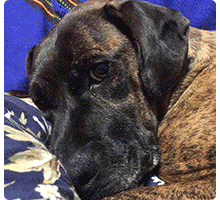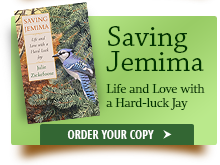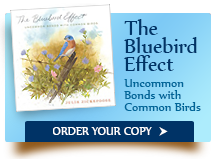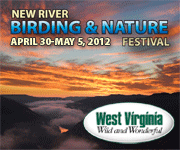If you're going to make so much as a stab at wildlife rehabilitation, you have to be ready and willing to have your plans changed with the ring of a telephone.
In order to get my state rehabilitator's permit, I must supply my home phone number, which is then published in a booklet that goes to every wildlife officer, soil conservation service, park, and veterinarian in the state.
This is not as I would like it to be, but it is what it is.
In the summer I get a lot of calls. Most people I can help over the phone. But sometimes I have to do a run.
A great blue heron standing hurt on the porch of an abandoned house is cause for a run.
In this day of cell phones and zapping photos, you can find out a lot before you ever climb in the car. The people who found this heron walking through their front yard sent me this photo:
and although the bird looks OK, I could see it was in terrible trouble with its left foot. A heron needs its feet, and this one looked to have a middle toe, at least, that was badly broken and maybe infected.
There was a lot of stuff everywhere and the heron had been climbing around their yard, looking for who knows what. Help, probably. Baby birds do weird things; injured birds go weird places. Who knows what they're thinking. Maybe they're thinking someone can help them. It's not too farfetched to guess that.
These folks have banks of cages with stray cats they've taken in in their yard; the cats are being fed and medicated, and maybe the heron saw that and put two and two together.
I don't know. Maybe. It made its way there from the river across the highway.
So I hurried to get there, and found the heron staring at minnows in a baby pool that the people had thoughtfully provided it.
It was a baby heron, probably not long at all out of the nest. I could tell that by its pale feather edgings and the barred look of its neck feathers; by the lack of any breeding plumage at all. You can see all this best in the first photo. I guessed that perhaps it had broken its toe getting tangled in monofilament in the nest, a common and very sad occurrence. Fishermen who leave those big tangles of mono hanging in trees are so careless, so thoughtless, just getting good birds in bad trouble. It's a terrible thing to do, because herons and ospreys, among others, think monofilament looks like lovely nesting material. They incorporate it in their nests and once tangled in it a baby bird is in deep trouble.
It cuts like a knife, embeds itself in flesh, breaks bones, and will not give way when the bird struggles.
I donned some goggles and gloves and easily captured the bird, grabbing the neck and bill first. Herons will put your eye out in a single lightning strike, but this one was much too weak to be lightningy.
I had brought some Ensure in a syringe, and I fed the poor emaciated thing. Sure enough, its foot was terribly infected, the middle and outer toe with compound fractures, giving it a very poor prognosis for survival. Foot infections in birds can be intractable. And herons need to perch, need to walk to forage. They can't do with only one or two functional toes on a foot.
Looking inside its bill, I was alarmed to find reddish, oblong parasites which Kristi at the
Ohio Wildlife Center advised over the phone are flukes. She said most herons have them and they don't seem to cause problems. But oh, yuck. Flukes in the gape. Poor weakened thing, it didn't need to have flukes, too.
There was nothing to do but drive this bird to the
Ohio Wildlife Center in Columbus, 2 1/2 hours away, to see if there was any hope at all for its foot and its future.
I drove, enjoying the beautiful July Ohio countryside, snorting the stench of sick heron poo out of my nose, musing on futility and stupid old hope, knowing this bird was probably too far gone, too badly injured to be salvaged, but at the same time unable to leave it there on the porch, staring into a baby pool.
It died that very night, probably before I even got home, but someone--the two who found it; me; the staff and veterinarian at OWC-- at least cared, someone tried.
Another day, another try.















23 comments:
You and everyone else made a difference, and that counts.
It hurts my heart to hear of these things, yet, I know your love flows on into the world to make a difference. It is grace; a blessing to us all.
This brought tears to my eyes. Thank you for caring and trying.
It is the fact that you try that is important.
Although I'm sure the bird was stressed at first capture, it got the help it was looking for and knew (I believe) that he was being helped.
You made a difference in its life and in the lives of the people who tried to help it. (The pool with minnows is just so sweet.)
Touching account of a heroic example,yours,in the true sense of the word.
Yes, those are indeed flukes, or trematodes( Clinostomum sp), parasitic flatworms that live in the mouth of herons. These worms lay eggs that reach the water ,hatch into a swimming stage that infects snails where it multiples into stages that leave the snail and infect fish ,frogs and even salamanders. In these animals it forms a cyst in the flesh where fishermen recognize them as "yellow grubs". The infected fish,or frogs are eaten by the heron and the immature worms in the cysts mature into the adult worms found in the mouth. It is doubtful that they harm the bird.
Your point about the hazards of fishing monofilament to birds is well taken . Almost any animal -- diving ducks, loons, etc, and mammals, mink,coons, etc , can get miserably,and often fatally tanged up in the discarded fishing line. As a fisherman, I too have gotten tangled up so the wading can become hazardous.
Marvelous post -- so packed with valuable information--and lessons-- at all levels.
Thank you, Julie, for caring so deeply for the welfare of birds and other critters. I still struggle to sort out my feelings on rehabbing (do the few individuals saved really make a difference on a population level? would it be kinder in many cases to put injured animals down immediately rather than subjecting them to further suffering as we try to treat them?) but there is no question that I have enormous respect for people like you who are willing to drop everything to try to help an animal in need. On my own blog I recently wrote about how, after repeatedly finding dead birds outside the windows where I work, yesterday I found a stunned but alive warbler and (unsure what was really the right thing to do) held it in the safety and warmth of my hands until it recovered and flew away. Today I'm getting in touch with the head of the school about hanging something on the windows, because I absolutely cannot stand doing nothing while birds are dying unnecessarily.
Reminds me a bit of the "Old man and the starfish" proverb told in various forms. Here's one:
http://tinyurl.com/3njmc39
Oh, the poor thing! But you did what you could, and I admire you for that.
Bless you for trying; that all of us who read can share in the mourning must be something.
Thank you for caring and writing so beautifully. I enjoy your blogs, your book, and other writings.
Susan Hand Setterly, in her book Settled in the Wild, has a chapter about rescuing a young raven with fishing line around its leg. She had a better outcome.
Greetings to Chet Baker, too. He reminds of the Boston my family had when I was a little girl.
Any time I visit a fishing site, I walk around, carefully watching for line and picking it up. We once did "surgery" on a pigeon at a Burger King with some around a foot. Had to amputate one digit, but got it clear. Not a protected species, I know, but what are you to do?
There is a place in heaven for you Julie--Thank you for being there and trying. It's what we have to do--You never know what will happen in the end, and you know you did your best to give that young heron a chance for a good life. Hugs--Anita.
Thank you for all you do for wildlife and thank you for posting an informative writing. Personally, I feel we must do what we can for wildlife/animals--those who have no voice. It may not make a difference on the population as a whole but it matters to the One--just as in the starfish story. Your compassionate act sends ripples. We must possess & give a love that transcends species. Thanks Julie!
It's nice to know there are people out there like you doing great things. Thanks!
It hurts me to see injured and sick birds and animals. Thank God for people like you who care enough and have the training to take care of the poor creatures. So sad the little heron died. Perhaps had it been found earlier it might have lived with your care. Thank you!
So sorry the bird died--but thank you for trying. I'm in awe of all you do.
Sharon
No act of kindness is ever wasted.
"lightningy" :)
A tangled anhinga almost got my eye when I was about 12 years old and trying to rescue it.
Total ignorance of that defensive tactic and total luck is all that saved me from an eyectomy.
I think of you, Julie when I read this quote: "I am only one. I cannot do everything,but still I can do something. And because I cannot do everything, I will not refuse to do the something that I can do." Edward Everett Hale I try to follow that feeling whenever I can and I know you do to. Wish more people would. My heart goes out to you.
Sorry it could not be saved. But it was so sweet to see that the pic with the little pool that those folks had provided.
Thank you, thank you. A beautiful reminder of what we must do for each other: love and try to help.
I know this post is old, but thank you for your kindness.
Post a Comment